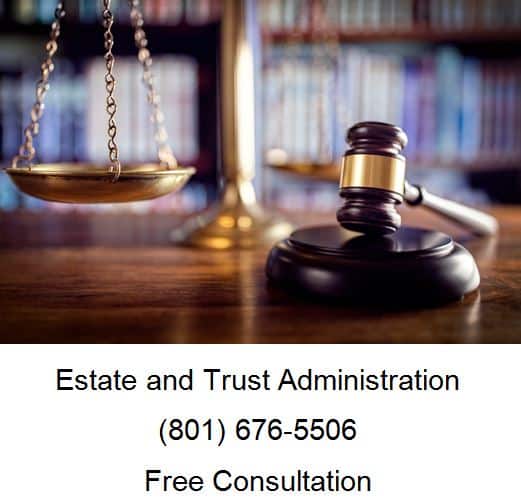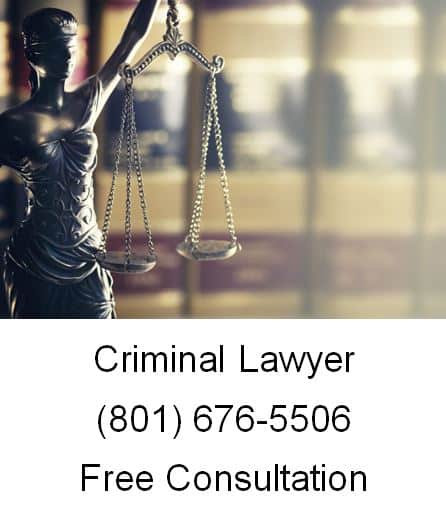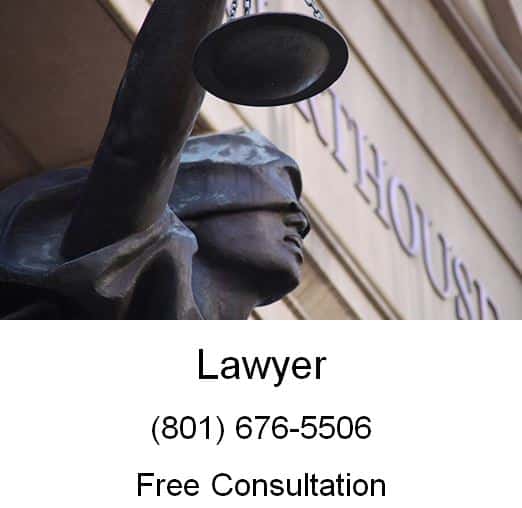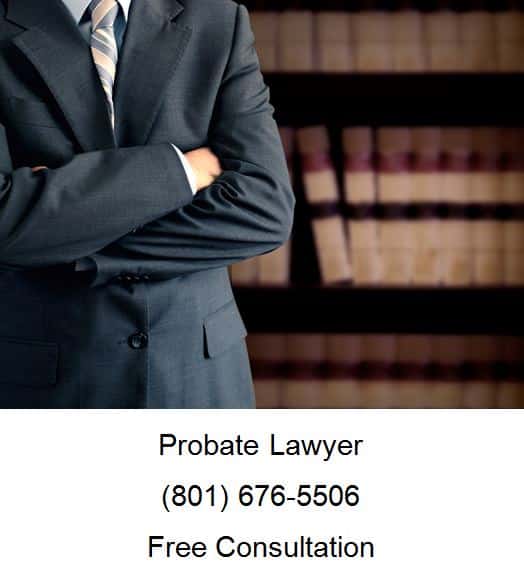
A trust protector is an independent third party or institution given the authority to perform certain duties with regard to a trust. A trust protector’s role is to ensure that the wishes of the trust maker, the individual who made the trust are fulfilled and that the trust continues to serve the purpose for which it was intended. The trust agreement typically details his responsibilities and his areas of authority.
Serve as a Trust Protector
As an independent third party, the trust protector cannot be related to the trust maker or to any of the trustees or trust beneficiaries. Sometimes the trust agreement, the trust’s formation documents will specifically name a trust protector, but it might instead just lay out the process by which a trust protector can be appointed instead. If the trust maker is married, his spouse may be granted the power to appoint someone. Otherwise, the trust beneficiaries can nominate someone and the court can appoint that individual. If the trust agreement names a specific individual, the document should also specify how he should be replaced if the initial individual is unable or unwilling to serve when called to action.
A trust protector is most commonly associated with irrevocable living trusts.
For all practical purposes, the terms of these trusts are set in stone. The trust maker of an irrevocable trust cannot later undo it or take back property he placed into it. In the case of an emergency, such as if something happens so the trust can no longer serve the purpose for which it was intended, or if changes in the economy cause it to lose money at an alarming rate as it’s presently set up only a trust protector can step in and take action to make things right. The trust maker has relinquished all control, so he’s personally powerless to remedy the situation. The trust protector may be granted limited or an expansive list of powers. At a minimum, he should be able to remove and replace the existing trustees. He may be given the power to settle disputes among co-trustees, or between trustees and beneficiaries. He may be permitted to alter trust provisions due to unanticipated circumstances, such as changes in the economy or with tax laws. This power is critical for Dynasty trusts that can continue for many years into the future after being set up. He may be able to terminate the trust entirely, to modify the powers of the trustee, to change the sites or legal jurisdiction of the trust, or to correct ambiguities or errors made when the trust was drafted. Under the laws of some states, the trust protector will be able to exercise these powers without the need for court approval. This can minimize the costs incurred in administering the trust. The role of trust protector is a function that carries out enumerated administrative and strategic purposes generally not reserved to the trustee, settler, or beneficiaries. There is no mandate that the trust protector actually protect the trust. The name itself could be anything and has no inherent meaning. To help interpret the intricacies of the trust protector’s role, commentators look to the variety of statutory and case law that exists in the United States regarding trust advisors, although there seems to be some question about how similar the roles of trust protectors and trust advisors are. Also, there is international common law jurisprudence that can be used for reference purposes. In structuring a trust, generally the attorney delineates the relative rights and powers of the parties. For instance, the trust generally addresses matters such as whether the settler (and beneficiaries, after the settler’s death or incapacity) will have the right to remove or replace a trustee. Further, the powers of the trustee regarding many matters, including investment and distribution, are also generally addressed. Beyond these basics, sometimes more profound issues are not easily addressed by the traditional roles. For example, questions can arise over whether to change the legal sites, governing provisions, or beneficiaries of the trust. These are the instances in which the role of the trust protector is most helpful.
Paying the Trust Protector
A trust protector is entitled to compensation for the services he renders on behalf of the trustees and beneficiaries. The trust agreement should set forth the method for determining how much he is paid.
A Dynasty Trust is a long-term trust created for the purposes of passing and building wealth from generation to generation without incurring federal estate tax. For families with significant wealth, this trust provides substantial tax savings for future generations for up to 360 years in Tennessee. The Dynasty Trust is created in your will/revocable trust and only becomes funded at your death. The idea behind the trust is that your children do not receive their inheritance outright. Instead, your assets pass through the Dynasty Trust and stay in trust for their lifetime. Most often, clients want their children to be trustees of their own trust and that is certainly possible. But the trust must have certain boundaries/standards by which money may be used. The broadest limits we usually put in the trust are the assets may be used for the child’s health, education, maintenance, and support. That restrictive language is critical to ensure that the assets in the trust are not included in the child’s estate. A trust with no standard by which the trustee must distribute assets would likely cause the trust to be included in their estate. This circumstance would make the trust asset subject to the estate tax and thereby defeat the entire purpose of the Dynasty Trust. Be aware that if you use a broad standard for distribution of the assets, it would ensure that the child may use significant portions of the assets for their needs. For example, if your child wanted to purchase a home she could do so with trust assets. If she needs groceries, or to pay for medical expenses, the money would be there to support her. Also, included in the Dynasty Trust is a limited power of appointment. This limited power of appointment allows the trustee to appoint trust property by will to whomever they like. So, if someone wanted to leave her trust assets to her spouse or children she can choose to do so in her will. But note, the Dynasty Trust has a provision which directs the trust assets to pass to your lineal decedents should your children fail to exercise this power of appointment. Even if your children do not exercise their limited power of appointment, the trust assets will be provided to the new beneficiaries in a new Dynasty Trust that will be governed by terms and standard of the original Dynasty Trust. As such, each successive generation of beneficiaries will have a power to appoint where these assets go in their will, just as if they owed the assets personally. But these successive beneficiaries will never own the assets personally. Rather, the trustees will control the assets in trust and keep them free from estate taxation for generations to come. Under the terms of the Dynasty Trust, your daughters would have the ability to appoint new trustees at their death. For example, your children could easily name your grandchildren as trustees of their trust once they are of age. On the other hand, if a grandchild has substance abuse problems, your child may decide to name a third party as trustee for that grandchild for his or her life.
An understated benefit of a Dynasty Trust is assets placed into the trust are protected from the claims of creditors. This means that in the event any of your descendants incur any debts on their own, their creditors will never be able to seek relief from the assets in this trust. Additionally, the Dynasty Trust is a good estate planning vehicle for ensuring that the wealth your family has stays within your family bloodline. By placing your assets into a Dynasty Trust, you can ensure that the wealth will be protected from any future ex-spouses in the event of divorces. While there are many benefits to including a Dynasty Trust within your estate plan, there are two significant drawbacks to using a dynasty trust. The trust, like most irrevocable trusts, will be subject to an income tax that has a higher tax rate than that of an individual tax payer if the income of the trust is not distributed directly to the beneficiary. Currently, the highest income tax rate on a trust is 40%. This rate is higher that any personal tax rate. But if the income of the trust is distributed to the beneficiary, the beneficiary pays the tax at his or her personal tax rate. (Note this is income tax and not the estate tax. If the trust is properly planned the principal of the trust will not be taxed, only the income derived from the assets in trust). Accordingly, if your children want to live off of the income of their trusts they can do so. The income from the trust would only be taxed at their personal tax rate, not at the rate of 40%. It is only taxed at a maximum rate of 40% if the funds are reinvested in the trust.
Second, it is likely that assets that were purchased many years ago have increased in value over time. If the assets are owned by individuals they will receive a step-up in tax basis at the death of the owner. What that means is if the owner dies his family inherits the property based upon the value at his death, not what he paid for it. This step-up in basis amounts to significant tax savings for families. However, that is not the case with Dynasty Trusts. These trusts do not provide families with a step-up in basis at the death of each successive generation. So, as a consequence, a Dynasty Trust may not be appropriate for families that plan to sell assets down the road.
Make Trusts More Flexible
Trusts that continue for the benefit of a surviving spouse’s lifetime and then for the benefit of several generations have become
• Carefully selecting trustees.
• Defining trust beneficiaries.
• Including powers of appointment.
• Allowing for trust decanting.
• Providing for the appointment of a trust protector.
Choosing the right succession of trustees for an irrevocable trust that is intended to continue for years into the future is critical to the trust’s success and longevity. Typically the client’s initial thought is to name one or more family members as Trustee(s) who can then appoint additional family members because they will better understand the varying needs of the beneficiaries and will keep the costs of administering the trust down. But in reality family members will not be able to fulfill all of their fiduciary obligations without hiring legal, investment, and tax advisors. These expenses will add up and can ultimately cost more than a corporate trustee, such as a bank or trust company, which will be able to meet all fiduciary obligations under one roof for one fee. On the other hand, forcing trust beneficiaries to be stuck with the wrong trustee without a reasonable means for removing and replacing the trustees will land the beneficiaries and trustee in court. It is crucial to build provisions into the trust agreement which allow beneficiaries or a trust protector to remove and replace trustees without court intervention. A corporate trustee will act as a neutral party to oversee discretionary distributions and investment strategies that benefit both current and remainder beneficiaries. To create flexibility, specific beneficiaries (such as current income beneficiaries) or a trust protector should be given the right to remove the corporate trustee and replace it with another corporate trustee.
Clients need to consider who they want to include as trust beneficiaries twenty, thirty, or even fifty years into the future. While clients cannot predict or foresee everything that will happen in the future, they should still take time to consider who they want to take care of after they are gone. Clearly defining the class of beneficiaries who will benefit from the trust will allow for a smooth transition between generations and potentially head off litigation. Clients who are concerned about how children, grandchildren, or great grandchildren will eventually grow up can build flexibility into a dynasty trust by giving a surviving spouse or other beneficiary the ability to include or exclude heirs through a power of appointment. A power of appointment is also important when a trust is designed as a generation skipping trust but one or more beneficiaries do not have children, and it can also be used to include or exclude charitable beneficiaries. Powers of appointment at each generation should be considered when designing a trust that is intended to last for decades into the future. The powers can be as limited or as broad as the client desires without creating any gift tax or estate tax problems.
Trust Decanting involves taking the funds
Reasons for Decanting a trust may include the following:
• Tweaking the trustee succession provisions.
• Converting a trust that terminates when a beneficiary reaches a certain age into a Dynasty trust.
• Changing a support trust into a full discretionary trust so that a beneficiary’s creditors cannot seize assets from the trust.
• Clarifying ambiguities or drafting errors in the existing trust.
• Changing the governing law or trust sites to a less taxing state.
• Modifying powers of appointment.
• Merging similar trusts into a single trust or creating separate trusts from a single trust.
• Adjusting the trust terms to provide for a special needs beneficiary. Clients may be concerned that including decanting provisions into a Dynasty Trust will defeat their long-term goals and intent. However, including the authority to decant a trust provides flexibility into the trust agreement from the beginning, reducing the risk that a client’s beneficiaries will end up in court to fix a trust that no longer makes practical or economic sense.
A trust protector is an individual or entity that is empowered to make trust changes so that the grantor’s wishes can be ultimately fulfilled. A trust protector’s duties can be as limited or all-encompassing as the grantor chooses. In essence a trust protector can be given the power to modify the terms of a trust without necessarily having to decant it and to address unforeseeable events such as changes in tax laws or family dynamics. Of any of the options clients can include in their trust agreements to insure flexibility; a trust protector is in and of itself the most flexible. This is because a trust protector can be given the right to appoint, remove and replace trustees; include or exclude beneficiaries; adjust powers of appointment; and decant the trust into a new one. Therefore, trust protector provisions should be included in all trust agreements. Unfortunately trust agreements that are more than a few years old will most likely lack provisions for allowing the trust terms to be adjusted as the needs of the beneficiaries and governing laws change. The good news is that modern trust law contemplates these changes and can be invoked to fix an old trust that has gone sideways.
Trust Protector Lawyer Free Consultation
When you need legal help with a trust protector or dynasty trust, please call Ascent Law LLC for your free estate law consultation (801) 676-5506. We want to help you.
8833 S. Redwood Road, Suite C
West Jordan, Utah
84088 United States
Telephone: (801) 676-5506
Recent Posts
Can The Executor Of A Will Take Everything?
Can Divorce Cause Mental Illness?
Criminal Defense Lawyer Bluffdale Utah
Can The Chapter 7 Trustee Sell My House?
Source: https://www.ascentlawfirm.com/trust-protector-and-dynasty-trusts/




